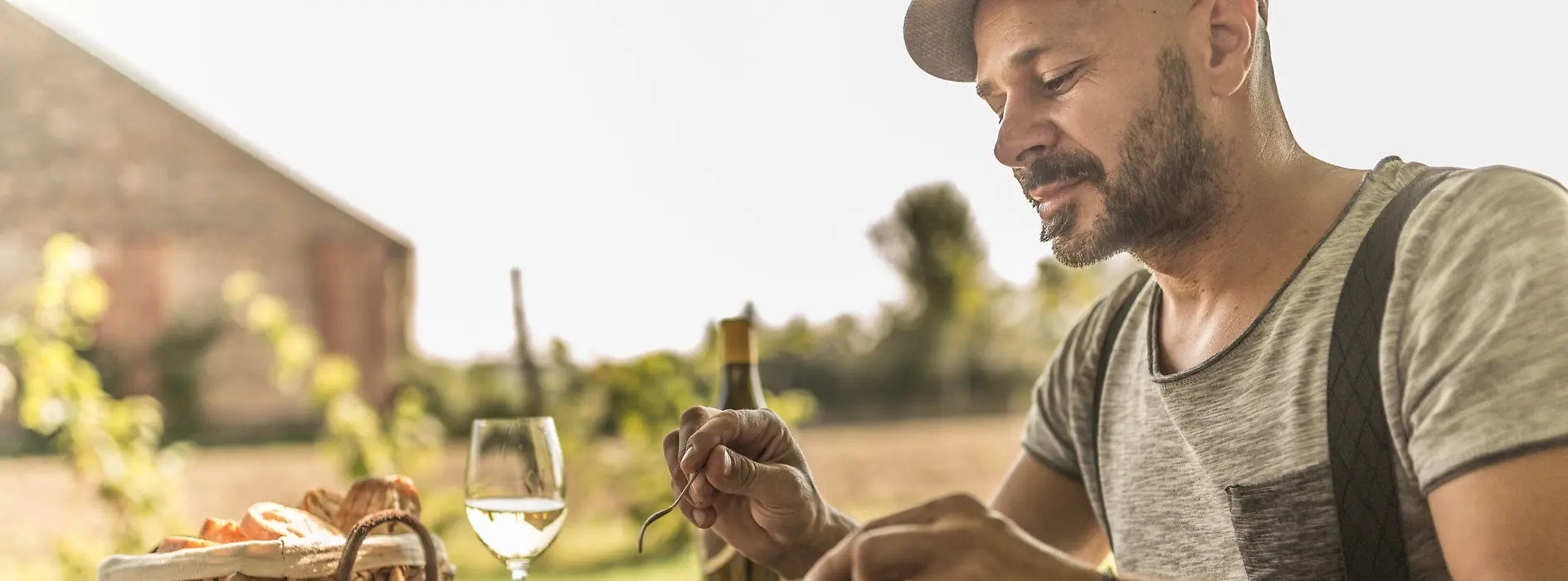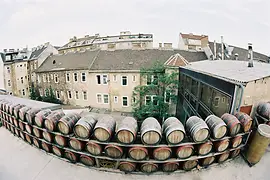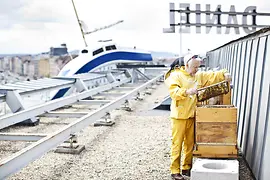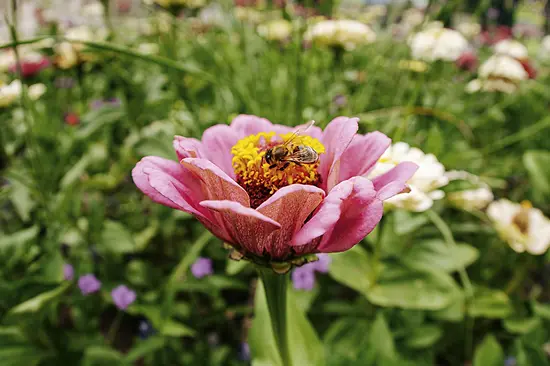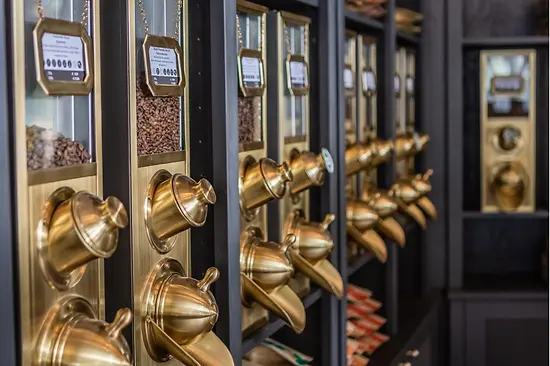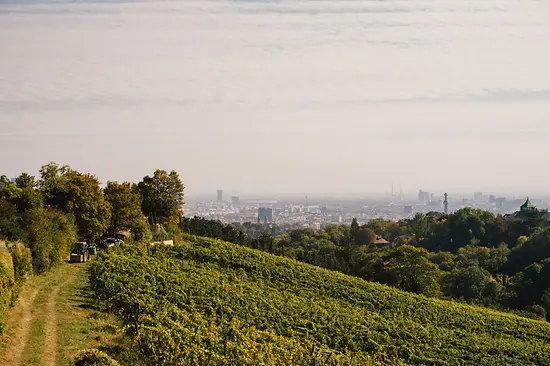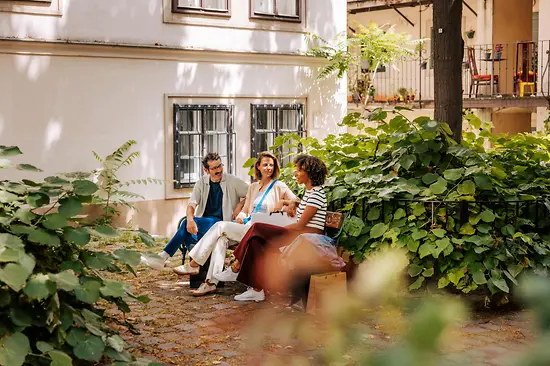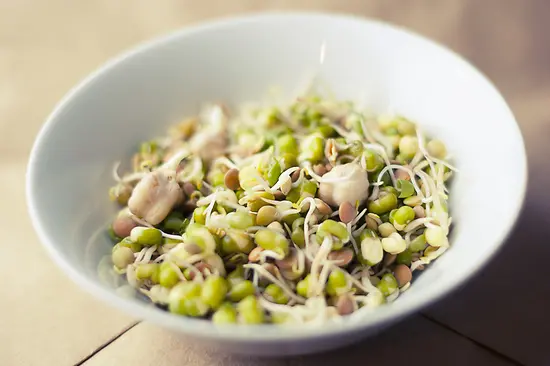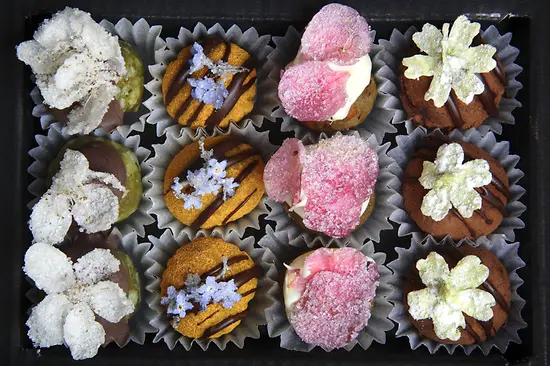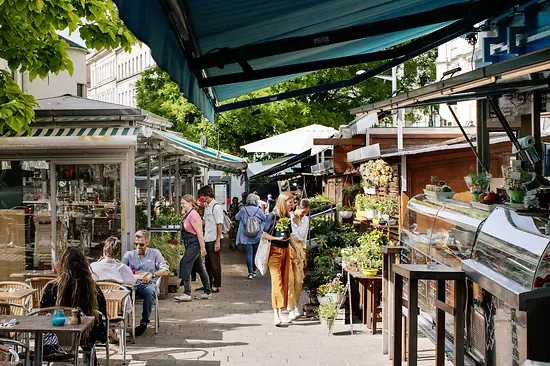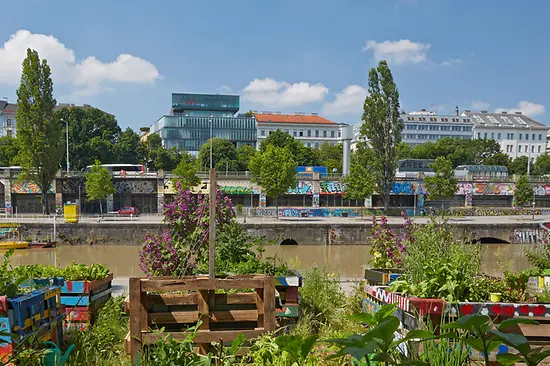Viennese delicacies
Some 200 organic fig trees can be found growing in the Feigenhof greenhouse in the 11th district to the south of the city, where harvest begins in summer and continues right through to November. The aromatic fruit are hand-picked and sold fresh or made into fig products such as jam or liqueur which can be bought from the farm shop, but only on Saturdays. The Feigenhof also produces vegetables, berries and an impressive selection of 200 different herbs. Guided tours are also offered on request.
Top chefs are among the clientele of the vinegar producer Wiener Essigbrauerei Gegenbauer in the 10th district. Erwin Gegenbauer, known as the "vinegar pope", brews his luxury fruit, wine, balsamic and drinking vinegars using only natural ingredients and without pasteurisation or filtration. His wares can be bought and tasted at the traditional Viennese company's permanent stand on the Naschmarkt.
The 10th district is also the home of the Viennese Escargots. Andreas Gugumuck has devoted himself to the rediscovery of this old Viennese delicacy and breeds free-range vineyard snails on a 400 year-old farm. Specialties such as snail liver and snail caviar are also produced. They can be found on the menus of the city's best restaurants nowadays and are also available to buy in the shop of the snail manufactory. Guided tours of the snail farm and tastings in the bistro of the snail manufactory are held every year from May to October. Visitors listen to entertaining stories told by Andreas Gugumuck about the history, biology, breeding and preparation of Viennese escargots. Gugumuck’s Farm2Table Garden Bar is open from the end of May to the end of September (Thu-Fri 3pm–10pm, Sat-Sun 11am–10pm), serving cool drinks and fine dishes with produce from their own fields – and not just snails. On selected dates, there is also a multi-course snail-inspired fine dining menu in the bistro, accompanied by Viennese wines.
Most of the city's agricultural produce comes from the large green expanses in the outer districts to the south, north and east. But Vienna's bees feel right at home in the centre of town, where hives can be found on the roofs of the Vienna State Opera and several hotels including Hotel Daniel Vienna. The hotel shop sells the honey and serves it up for breakfast. Put simply, bees love Vienna. The countless meadows, trees, parks, gardens, roadside verges, balconies and green rooftops provide a constant, yet ever-changing palette of blossoming flowers for the insects, which number over 200 million. Temperatures also remain higher for longer in the city than in rural areas and pesticide use is very low. The 5,000 colonies in the capital are tended to by 600 keepers.
Vienna's climate, with many days of sunshine and the nearby Lake Neusiedl which stores a huge amount of heat, makes it perfect for growing an amazing array of produce. Vienna is also the only major capital with a significant winegrowing industry within its borders. Each year some 2.4 million litres of wine are produced from its 600 hectares of vineyards. Wherever wine grows, vegetables are not far away. The city's agricultural industry consists of about 450 farms and companies. Viennese growers supply more than 60 percent of Austria's cucumbers, and harvest large crops of egg plants, parsley, peppers and tomatoes.
- Am Himmelreich 325, 1110 Wien
- bio@feigenhof.at
- http://www.feigenhof.at
- Waldgasse 3, 1100 Wien
- office@gegenbauer.at
- https://www.gegenbauer.at
Guided tours
Appointments for guided tours are announced on the website or available upon request.
- Naschmarkt, Stand 111-114, 1060 Wien
- http://www.gegenbauer.at/
Opening times
- Mo - Fr, 10:00 - 18:00
- Sa, 09:00 - 17:00
- Rosiwalgasse 44, 1100 Wien
- https://gugumuck.com/
Opening times
- Mo - Fr, 08:00 - 16:00
- Landstraßer Gürtel 5, 1030 Wien
- hellovienna@hoteldaniel.com
- http://www.hoteldaniel.com/de/wien/
Display alternative text
Video about one of the city’s hidden treasures - Meidlinger Market and a visit to the Gugumuck snail farm
